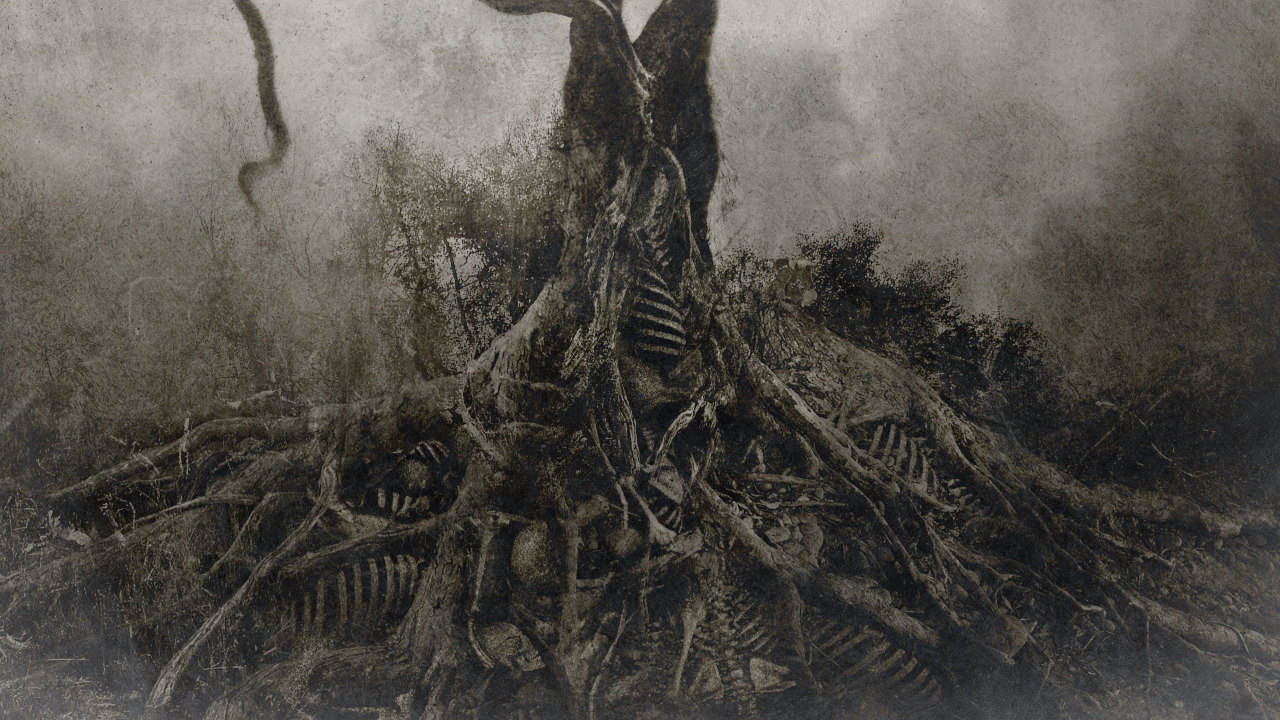The Ultimate Opeth Prog Playlist
Always wanted to check out Opeth but never knew where to start?

Select the newsletters you’d like to receive. Then, add your email to sign up.
You are now subscribed
Your newsletter sign-up was successful
Want to add more newsletters?

Every Friday
Louder
Louder’s weekly newsletter is jam-packed with the team’s personal highlights from the last seven days, including features, breaking news, reviews and tons of juicy exclusives from the world of alternative music.

Every Friday
Classic Rock
The Classic Rock newsletter is an essential read for the discerning rock fan. Every week we bring you the news, reviews and the very best features and interviews from our extensive archive. Written by rock fans for rock fans.

Every Friday
Metal Hammer
For the last four decades Metal Hammer has been the world’s greatest metal magazine. Created by metalheads for metalheads, ‘Hammer takes you behind the scenes, closer to the action, and nearer to the bands that you love the most.

Every Friday
Prog
The Prog newsletter brings you the very best of Prog Magazine and our website, every Friday. We'll deliver you the very latest news from the Prog universe, informative features and archive material from Prog’s impressive vault.
Malcolm Dome uncovers the prog gold from Opeth’s pre-Sorceress back catalogue for your enjoyment. Happy listening…
IN MIST SHE WAS STANDING
From Orchid. An early example of how the band might have had a solid metal foundation, but within this structure, there’s a restive desire to explore other angles. The aggressively agitating riffs convincingly give way on occasion to a more opaque, quieter mood. You can already feel the way in which Opeth are looking beyond the death metal parameters.
BLACK ROSE IMMORTAL
From Morningrise. The longest song Opeth have ever recorded, it starts with a driven riff that morphs into a Celtic-style dual-guitar break before swaying into a tense acoustic fill. An expanded guitar solo then guides the song into a mournfully fragile reflective piece before the track reaches its gloomy denouement. A masterclass of emotional unpredictability.
CREDENCE
From My Arms, Your Hearse. While much of this album is very heavy, Credence is superficially mellow. But the somnambulant lap of the music hides a friction that’s all the more predatory because it isn’t released by a sudden burst of manic riffage.
Sign up below to get the latest from Prog, plus exclusive special offers, direct to your inbox!
THE MOOR
"Still Life was not Satanic but an anti-Christian theme. It sounds pretty naive when I explain it like this. It kind of takes place a long time ago, when Christianity had a bigger importance than it has today," is how Mikael Åkerfeldt explains the concept of fourth album Still Life. The exuberant 11-minute opening track starts the story telling how the titular character is banished from his village for his beliefs
FACE OF MELINDA
From Still Life. This has an almost languid gait that’s suddenly spiked by a startling guitar crash, which leads to a poised climax, one that fades away into the mist. A rare example of how fading out a song can be effective.
THE DRAPERY FALLS
From Blackwater Park. This is another prime example of how Opeth can straddle several styles simultaneously. An opening guitar shard leads into a darkly unsettling passage, with Åkerfeldt’s eerily treated vocals lending a depth to the main body of the song. The rest of the arrangement butts symphonic metal against ethereal melody.
DIRGE FOR NOVEMBER
From Blackwater Park. Once again, Opeth shine on a song that comfortably nestles acoustic, folksy thoughts against a more expansive, heavier tapestry of rhythms. What makes it all work is that there’s a progressive pattern running throughout, the band never getting bogged down in metallic clichés.
MASTER’S APPRENTICES
From Deliverance. Don’t be fooled by the overt, almost doomy heaviness here: Opeth offer a number of supple interjections. These elevate this song well above merely being a cascade of brutality. Even at its most primal, Master’s Apprentices has disturbing erudition beneath its skin.
WINDOWPANE
From Damnation. Opeth might have a light touch here, but their weightiness cannot be ignored. The intertwining of vocals, guitar and keyboards is delicate and the song is enriched by a contemporary, sparse production.
DEATH WHISPERED A LULLABY
From Damnation. As the title suggests, this is a brooding song. Both lyrically and musically, this is a tale of life ebbing away, but a lightness of touch in the arrangement lifts it beyond the merely morbid. It has a florid sensibility that prevents it from choking on the emotions being reflected.
THE BAYING OF THE HOUNDS
From Ghost Reveries. Don’t be fooled by the growling opening – this is a far-sighted track that comes into its own as the caustic beginning gives way to increasingly complex and layered music. Here, Per Wiberg’s keyboard passages are crucial, helping build towards a dramatic climax.
THE GRAND CONJURATION
From Ghost Reveries. It starts with an angular rhythm that connects to a rather pompous glide before the song really takes flight. It mixes quietly stated passages with more aggressive blazing. But just when you feel it’s run out of ideas, there’s a turn into a more psychedelic motif, and then the main theme roars back impressively. Beautifully observed.
REVERIE/HARLEQUIN FOREST
From Ghost Reveries. The stark lyrical fatalism is presented in a resigned, slow-paced vocal manner, while the music provides a busy counterpoint. The influences here come from metal, folk and jazz, but all are aligned to magnify the spiritual confusion of the protagonist. A balance of imbalance.
GHOST OF PERDITION
From Ghost Reveries. There’s a strongly tribal feel to some of the rhythms here, and you can also appreciate the impact working with Steven Wilson had on the way Opeth construct a song like this. Multifaceted, all the various parts seamlessly coalesce to leave an overall sense of a musical rite of passage. Even the growling vocals are more theatrical than menacing.
COIL
From Watershed. The style is a little more raw, even though the overall sound is sumptuous. It’s a short song that still packs in a lot of daubs and ideas. Åkerfeldt and Nathalie Lorichs’ vocal lines mesh neatly with the acoustic guitars flavouring the mix. It’s a poised, almost understated, yet highly effective juxtaposition.
THE LINES IN MY HAND
From Heritage. When you listen to this, it seems like a very straightforward rock performance. But every time you revisit it, something else sticks in the mind – proof that Opeth can pack a variety of ideas into a short composition, without making it sound cluttered.
SLITHER
From Heritage. Another example of the way in which the band were developing. There isn’t a hint of metal here, with the pulsing riff occasionally giving way to a more elliptic presence, swirling around a pumping keyboard action and with some deft vocals from Åkerfeldt. This leads into a quieter mood that plays out the track.
VOICE OF TREASON
From Pale Communion. This is very much a track full of Eastern promise, and this styling provides a blanket for some clever musical ideas. Not the least of these is the way it all gently subsides at the end with a plaintive vocal set against a repetitive keyboard refrain.
MOON ABOVE, SUN BELOW
From Pale Communion. A full-blown symphony in 10 minutes. Like the immortal epics of bygone generations, this works because the musicality is filled with passion and a willing tendency to let the rhythms naturally go where they may. It makes for a lot of peaks and troughs that hold the attention throughout.
ELYSIAN WOES
From Pale Communion. This is how to keep everything very simple yet also expressive, and by doing so to accentuate the dark spirit of the song. Joakim Svalberg shines on keyboards, with Åkerfeldt’s vocals coming across with a confident air of authority. It’s distinctively instinctive.
Malcolm Dome had an illustrious and celebrated career which stretched back to working for Record Mirror magazine in the late 70s and Metal Fury in the early 80s before joining Kerrang! at its launch in 1981. His first book, Encyclopedia Metallica, published in 1981, may have been the inspiration for the name of a certain band formed that same year. Dome is also credited with inventing the term "thrash metal" while writing about the Anthrax song Metal Thrashing Mad in 1984. With the launch of Classic Rock magazine in 1998 he became involved with that title, sister magazine Metal Hammer, and was a contributor to Prog magazine since its inception in 2009. He died in 2021.






![Opeth - Master's Apprentices [HD 1080p] With lyrics - YouTube](https://img.youtube.com/vi/p3IyeexTiQE/maxresdefault.jpg)



![Opeth - The Grand Conjuration [OFFICIAL VIDEO] - YouTube](https://img.youtube.com/vi/AY5LRReFYus/maxresdefault.jpg)









